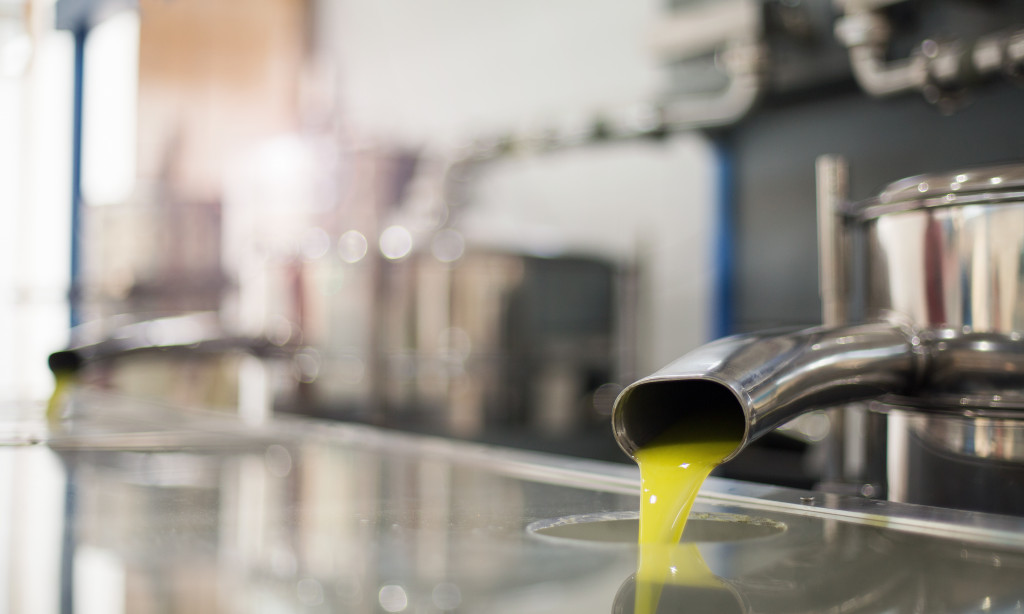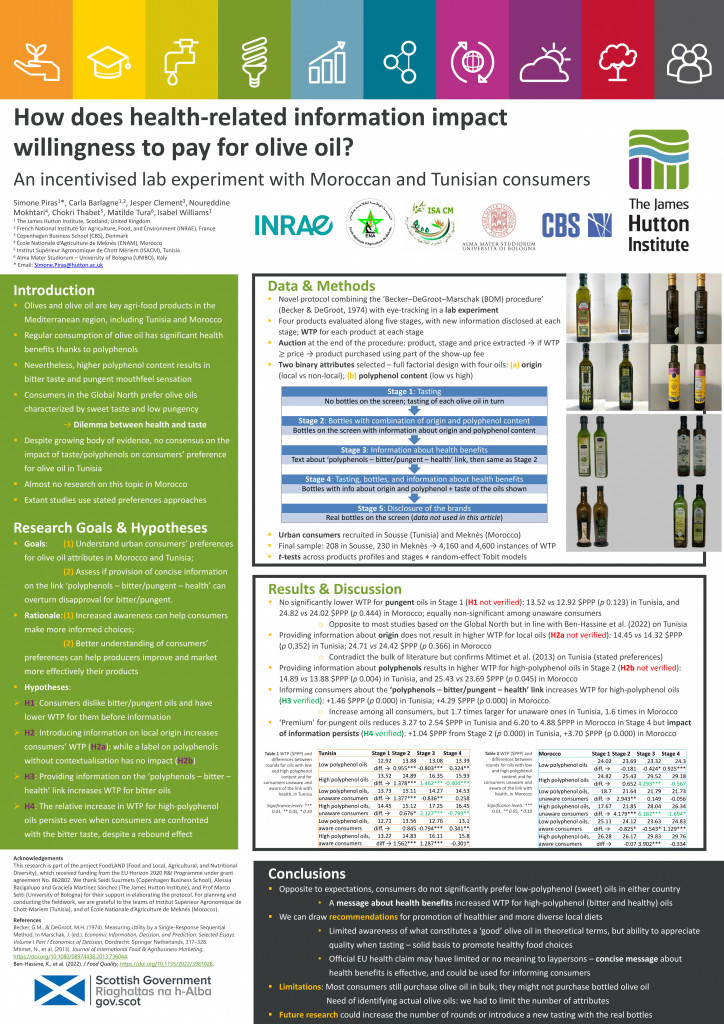A message about health benefits increases willingness to pay for bitter (healthier) oils

The FoodLAND partner Simone Piras (JHI) recently presented a poster (see the poster below) at the 98th Annual Conference of The Agricultural Economics Society, held at the University of Edinburgh, UK, which shows the results of an incentivised lab experiment with Moroccan and Tunisian consumers.
This experiment aimed to understand urban consumers’ preferences for olive oil attributes in Morocco and Tunisia. In fact, olives and olive oil are key agri-food products in the Mediterranean region, including Tunisia and Morocco. Regular consumption of olive oil has significant health benefits thanks to polyphenols; nevertheless, higher polyphenol content results in a bitter taste and pungent mouthfeel sensation, and consumers in the Global North prefer olive oils characterized by a sweet taste and low pungency. Therefore, a dilemma between health and taste exists.
With the aim of understanding urban consumers’ preferences for olive oil attributes in Morocco and Tunisia, and assessing if the provision of concise information on the link between polyphenols, bitter/pungent taste and health can overturn disapproval for bitter/pungent, researchers recruited more than 400 participants for the experiment.
Four products were evaluated by participants along five stages; new information was disclosed at each stage regarding the origin of the olives, the polyphenol content of the oil, information about the health benefits of polyphenols, etc., and participants were asked to specify their willingness to pay for each product at each stage.
Researchers saw that a message about health benefits increased consumers’ willingness to pay for high-polyphenol (bitter and healthy) oils, thus suggesting that recommendations might be disseminated for the promotion of healthier and more diverse local diets. Besides, they observed that providing information about the oil’s origin does not result in a higher willingness to pay for local oils.
Besides, on 11 April 2024, the FoodLAND partner Carla Barlange from JHI explained the lessons they learned during the conduction of this experiment in a seminar organised by the Centre for Agroecology, Water and Resilience of the Coventry University. Watch below Carla’s intervention:
